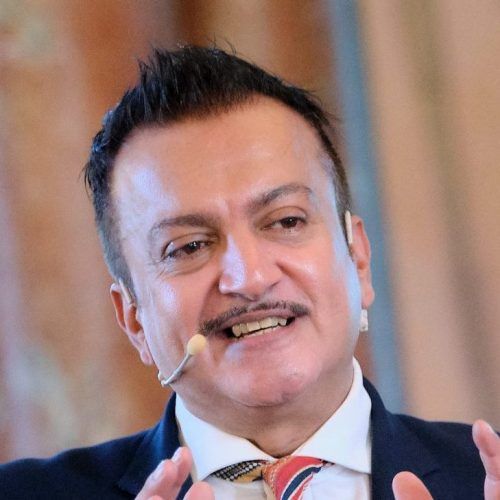2020 is perfect vision - but the year has so far been a shortsighted blur
Frankly Speaking
Chief Operating Officer and Chief Spokesperson of Friends of Europe
As the machinery of the EU winds down for the summer, it’s important to reflect. The coronavirus pandemic has ripped apart everything we knew and took for granted; it laid bare weaknesses, reinforced inequalities and political differences, and mostly, showed us that solidarity is a precious commodity.
Too much has been written about what went wrong, and what could’ve or should’ve been better and different. Going into recess, the Parliament, EU Council and the Commission need to be thinking about their game plan for the next nine months as it will impact the rest of their tenure and the EU project.
There are big-ticket items to sort out, starting with the implementation of the EU budget, if agreed in July. This means quickly getting their ducks lined up to ensure proper conditionality and effective accountability.
Other priorities in the laundry list include responding to a turbulent and unpredictable neighbourhood and global power struggle; building a better and more power-sharing relationship with Africa (and getting it right this time around); putting in place the right infrastructure for a green recovery and transformation; and sorting all matters digital. Let’s also not forget that temperatures are rising – and it’s just getting worse. There’s more, but this is already enough to set the scale and magnitude of the task ahead.
Let’s say that’s the day job, but waiting in the wings is another crisis in the making.
This is a crisis of the economic devaluation of the poorest and most disadvantaged
When banks, landlords and employers are weaned off of ‘subsidy’, it will be people of low or no income and disadvantaged communities that will feel the pain. Just look at the soaring eviction and repossession rates in the United States, especially in areas with high percentages of communities of colour.
This is a crisis of the economic devaluation of the poorest and most disadvantaged. Millions of people – those already struggling with unemployment, as well as those who looked forward to job continuity and living off of a basic wage pre-COVID-19 – will be impacted by this. It will be felt hard and deep.
Furthermore, as the world of work rapidly changes, digitisation, if not managed as a just transition, will create huge job losses.
Here’s what the EU needs to do:
First, adopt a ‘war room’ mentality to policymaking and delivery and make it the new norm, because trouble isn’t going away. Make a virtue of what has been learned while working in this time of adversity and extremes. Build on the strength of the immediacy of problem-solving, agility in decision making, and cross silos to develop a management and leadership style that is crisis-ready and savvy. Use this time to make the much needed reforms that were not possible before.
Second, watch out for the economic crisis in the public sector. With targeted funding, the EU can assist it to become more shock absorbent and resilient. Public sector systems don’t work well under pressure. It’s not their fault, they are simply not built to cope with sudden surges in demand. This crisis will bite municipalities hard. Already in debt and overspent, their recovery will be essential to maintain basic services and cope with potential rising homelessness, unemployment and poverty. Without addressing this properly, rehashed austerity measures will stoke up problems for wider society later.
Pay attention to the surge of protests and calls for action in Europe and around the world
Third, make an asset out of foresight and use it as a basis for Commission-wide thinking, policy development and decision making. Put in place an EU dashboard and a radar of what’s happening in member states. Analysing structural funding to assess economic trends and identifying lag factors can help the EU better navigate the next 3 -5 years more effectively.
Fourth, campaign to better communicate the plans for an EU wide safety net – it’s essential for reconnecting citizens to the EU project and its value to their lives.
Finally, pay attention to the surge of protests and calls for action in Europe and around the world. The 21st century equivalent of the public lynching of George Floyd has changed something in the global atmosphere around inequality – this will ricochet in many ways, not least in the public expectations of how policy makers address inequalities. The #StopHateforProfit boycott and consequent financial impact on Facebook last week is perhaps a foretaste of what’s to come.
The EU needs to hold a mirror up to itself, swallow some bitter pills and take meaningful steps to address these very real issues.
This is only the beginning…
You may also like…
- Friends of Europe: At the end of the day it’s all about values – isn’t it, by Dharmendra Kanani
- Europe’s World: An ambitious recovery budget, tough negotiations ahead, by Eulalia Rubio
- Debating Europe: What do you think the EU spends its money on?
Stay informed
